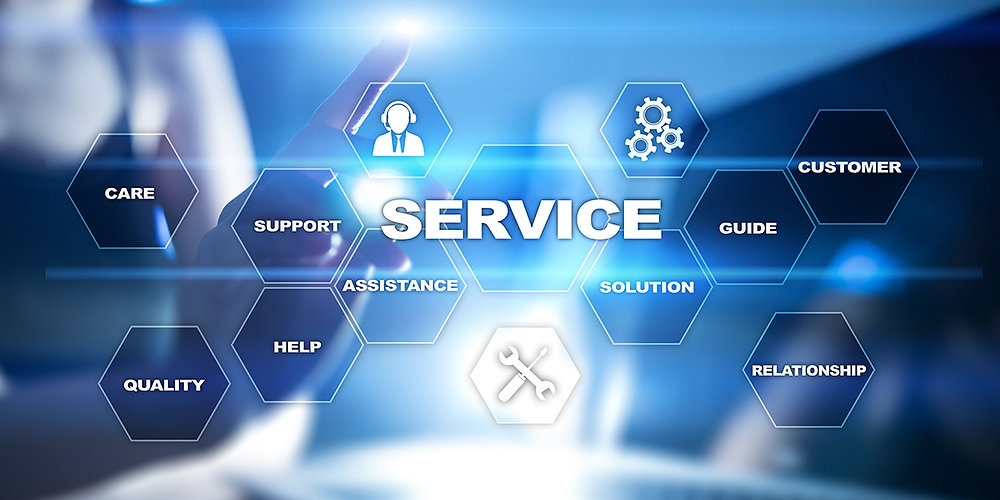In the service industry, efficiency and communication are paramount. As technology continues to evolve, many service-based businesses are turning to app development as a way to enhance their workflow. A well-designed mobile app can streamline operations, improve customer interactions, and ultimately lead to increased productivity and profitability. Here are several ways app development can improve workflow for service-based businesses.

Table of Contents
Toggle1. Streamlined Communication
Effective communication is vital for service-based businesses, whether it’s between team members or with clients. Mobile apps can facilitate real-time communication through messaging features, notifications, and updates. This ensures that everyone involved is on the same page, reducing misunderstandings and enhancing collaboration.
Example:
A cleaning service can use an app to coordinate schedules, assign tasks to team members, and keep clients informed about service times, leading to smoother operations and happier customers.
2. Efficient Scheduling and Booking
Many service-based businesses rely on appointments or bookings, which can become chaotic without proper management. An app can offer clients the ability to schedule appointments directly, view available time slots, and even receive reminders. This reduces the burden on staff and minimizes scheduling conflicts.
Example:
A beauty salon can allow clients to book their appointments via an app, enabling them to choose their preferred service providers and receive confirmation notifications, which streamlines the booking process.
3. Automated Task Management
Mobile apps can automate various tasks, such as sending reminders, updating schedules, and tracking progress. This reduces the manual workload for employees and minimizes the risk of human error. Task management features can help prioritize assignments, ensuring that important tasks are completed on time.
Example:
A home repair service can use an app to automatically send reminders to technicians about upcoming jobs, track job status, and facilitate customer feedback, ensuring that work is completed efficiently.
4. Enhanced Customer Relationship Management (CRM)
A mobile app can serve as a powerful CRM tool, allowing businesses to track customer interactions, preferences, and feedback. This data can be used to personalize services, improve customer satisfaction, and foster long-term relationships.
Example:
A fitness studio can track member attendance and preferences through the app, enabling it to offer personalized class recommendations and targeted promotions based on individual fitness goals.
5. Real-Time Tracking and Updates
For service-based businesses, providing clients with real-time updates on their service status can greatly enhance customer satisfaction. Apps can allow clients to track service progress, view expected arrival times, and receive notifications about delays or changes.
Example:
A logistics company can develop an app that enables customers to track their shipments in real time, providing peace of mind and reducing the number of inquiries about delivery status.
6. Simplified Invoicing and Payments
Managing invoices and payments can be a cumbersome process for service-based businesses. A mobile app can streamline this by allowing clients to view invoices, make payments, and access receipts all in one place. This not only improves cash flow but also enhances the overall customer experience.
Example:
An accounting firm can develop an app that enables clients to easily pay their invoices and access their financial statements, making the billing process more transparent and efficient.
7. Data Collection and Analytics
Mobile apps can facilitate data collection, allowing businesses to gather insights about client preferences, service efficiency, and overall performance. Analyzing this data can inform strategic decisions, helping businesses identify areas for improvement and growth.
Example:
A landscaping company can collect data on customer requests and service frequency through its app, enabling it to optimize service offerings based on customer demand and preferences.
8. Training and Support
An app can serve as a valuable resource for employee training and ongoing support. By providing access to training materials, manuals, and company policies, businesses can ensure that staff members have the information they need at their fingertips.
Example:
A home health care agency can develop an app that provides caregivers with access to training modules, client care plans, and communication tools to ensure they deliver the best service possible.
Conclusion
App development presents a unique opportunity for service-based businesses to enhance their workflow and overall efficiency. By leveraging technology to streamline communication, automate processes, and improve customer interactions, businesses can focus on what matters most: delivering high-quality services to their clients. In a competitive landscape, investing in a mobile app can be a game-changer, paving the way for growth and success.


No responses yet